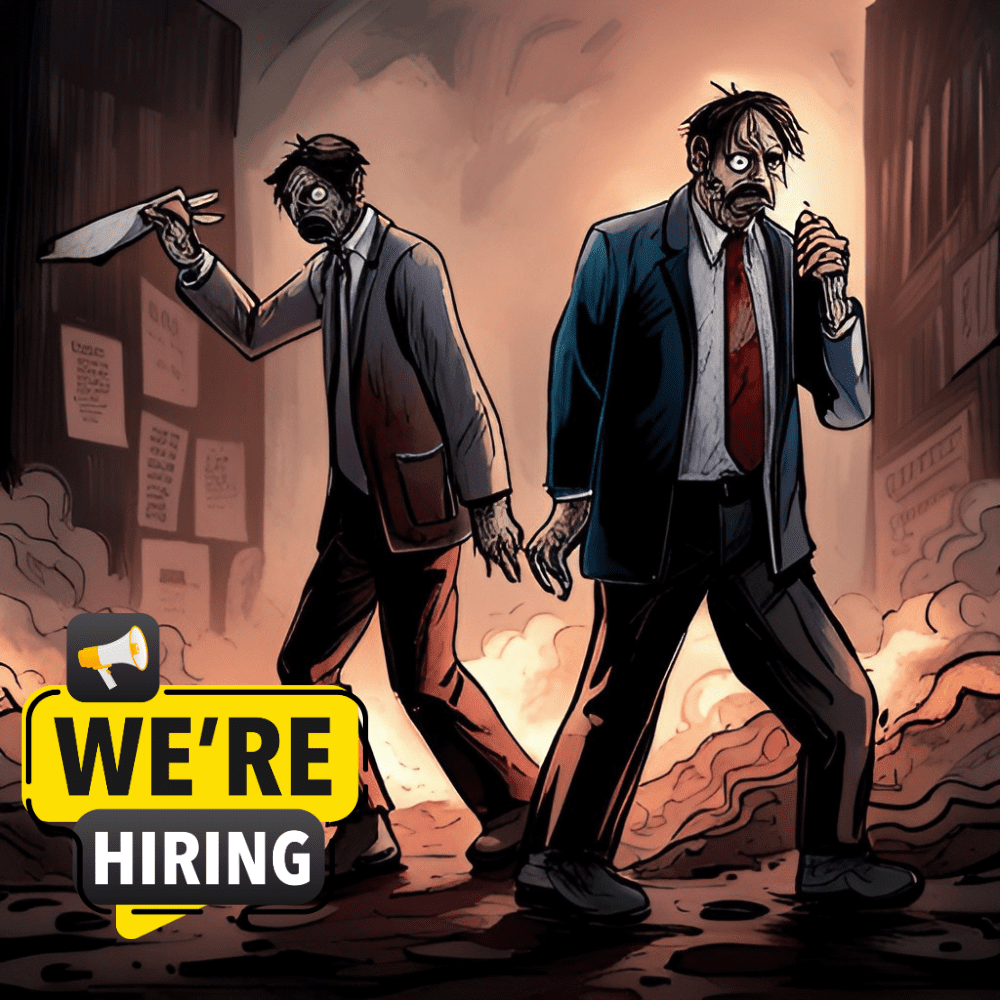Last Updated on August 28, 2023 by Christin
If you are looking for a new job, it may be tempting to take any interview and any job you are offered, but sometimes companies are desperate for employees for unhealthy reasons that you can’t see until you start working. This is why it’s important to spot some red flags during the application or interview process and avoid starting a job that you will just want to quit in a couple of weeks.
10 Red Flags To Watch Out For When Applying For A Job

1. Everything Moves Too Quickly
If you are contacted within minutes of sending in your application and hired during your interview – even though you’ve barely talked – this is a huge red flag.
It could mean one of many things, including:
- The job is very hard, and many people don’t want to stay.
- The job is abusive, and the company knows they need to hire quickly in order to maintain correct number of staff.
- It’s a scam of some sort.
Nadine can attest to this. She applied for a job as a night stocker and was contacted immediately for an interview later that day. During the interview, she was barely asked any questions, besides what her availability was, and she was hired on the spot. Once she started working she realized why. The job was abusive, hard labor, and unrewarding. Many people left after their first day. This is why they were desperate for people to work and didn’t care who they were.
2. The Job Description Is Vague Or Unclear
If the job description is vague or unclear, it’s a red flag.
It could mean that the person writing it doesn’t really know what the role is either and is just trying to just fill the position with anyone.
It may also mean that they are not clear on what skills or qualifications someone needs in order to do the job because they don’t really know themselves.
Either way, when you get into the job, it may be very overwhelming or confusing as the duties consist of many unwanted and unrelated things.
3. The Interview Is Not Focused On The Job
If the interview is focused more on personal questions, such as your religious beliefs or political affiliations, this could be a sign of discrimination and should be avoided.
It could also mean that the interviewer is not knowledgeable about the job itself, or they are just trying to fill a spot quickly without really caring about who gets it.
4. You Have To Pay Money Upfront
One of the most obvious red flags is if you’re asked to pay money upfront for anything related to the job, such as classes, background checks, or materials. This is a sign of a scam.
Legit companies cover the expenses associated with hiring someone, including background checks, drug tests, or any fees related to obtaining licenses and certifications.
Even if the job promises many benefits and rewards, avoid it. Don’t let your eagerness for employment cloud your judgment. The last thing you want is to spend your hard-earned cash on a job that may not even exist or end up being a scam.
5. The Employee Expectations Are Unrealistic
If the expectations for what you have to do are unrealistic, it could mean that the company will try to squeeze too much out of you and will not pay you enough for your efforts.
It’s a red flag for unappreciative employers and overworked employees.
Be sure to ask questions and make sure you are clear on what is expected of you before taking the job.
6. Job Benefits Are Not Discussed
If benefits such as vacation time or health insurance are not discussed in the interview process, this is a huge red flag. It could be a sign that they are not offering any or may not have them available at all. It’s important to make sure you understand what benefits are included before taking the job.
7. Not Meeting Your Potential Coworkers
If you don’t get to meet your potential coworkers or supervisors at the interview, it could mean that they may be hiding something from you, such as miserable coworkers who may give away how awful the job truly is.
It’s important to know who you’ll be working with and what to expect. You will often find that coworkers will give you a quick heads-up as to whether or not the job is good or bad.
8. No Job Description
If there is no job description or it is very vague, it could mean that the company doesn’t know exactly what they’re looking for and may be making it up as they go along. That’s a huge red flag for a poor workplace and job.
Make sure you have a clear understanding of what the job involves before accepting the offer.
Knowing your job description is crucial in any work environment as it sets clear expectations for your role and responsibilities.
Understanding what is expected of you at work can help you perform better and stay motivated.
It also helps you prioritize your tasks and focus on the areas that are most important to your job, which can ultimately lead to more success in your career.
Additionally, having a clear understanding of your job description can help you communicate effectively with your team members and your boss.
9. Poor Company Culture
Company culture is like the personality of a business. It’s the unspoken values, beliefs, and customs that make up the DNA of a workplace.
During a job interview, it’s important to assess not only your qualifications for the position but also whether the company culture is the right fit for you. However, it can be tricky to spot red flags during the brief interaction of an interview.
One way to gauge the company culture is to pay attention to nonverbal cues. Do the interviewers seem engaged and enthusiastic about the company and its values? Or do they seem indifferent or even disinterested?
Additionally, ask specific questions about the company’s culture, leadership style, and employee satisfaction, and listen carefully to the responses.
If you sense that the interviewers are evasive or give unsatisfactory answers, it may be a sign that the company culture is not a good match. Trust your instincts and remember that finding the right job is a two-way street.
10. No Career Growth Opportunities
Finally, if there are no opportunities for growth and advancement, it could mean that the company is not looking to invest in its employees. It’s important to make sure you’ll be able to grow professionally if you take the job.
Whenever you’re considering a new job opportunity, pay attention to these red flags and trust your gut. If something doesn’t feel right, it’s probably best to move on and find a place where you can be successful.





